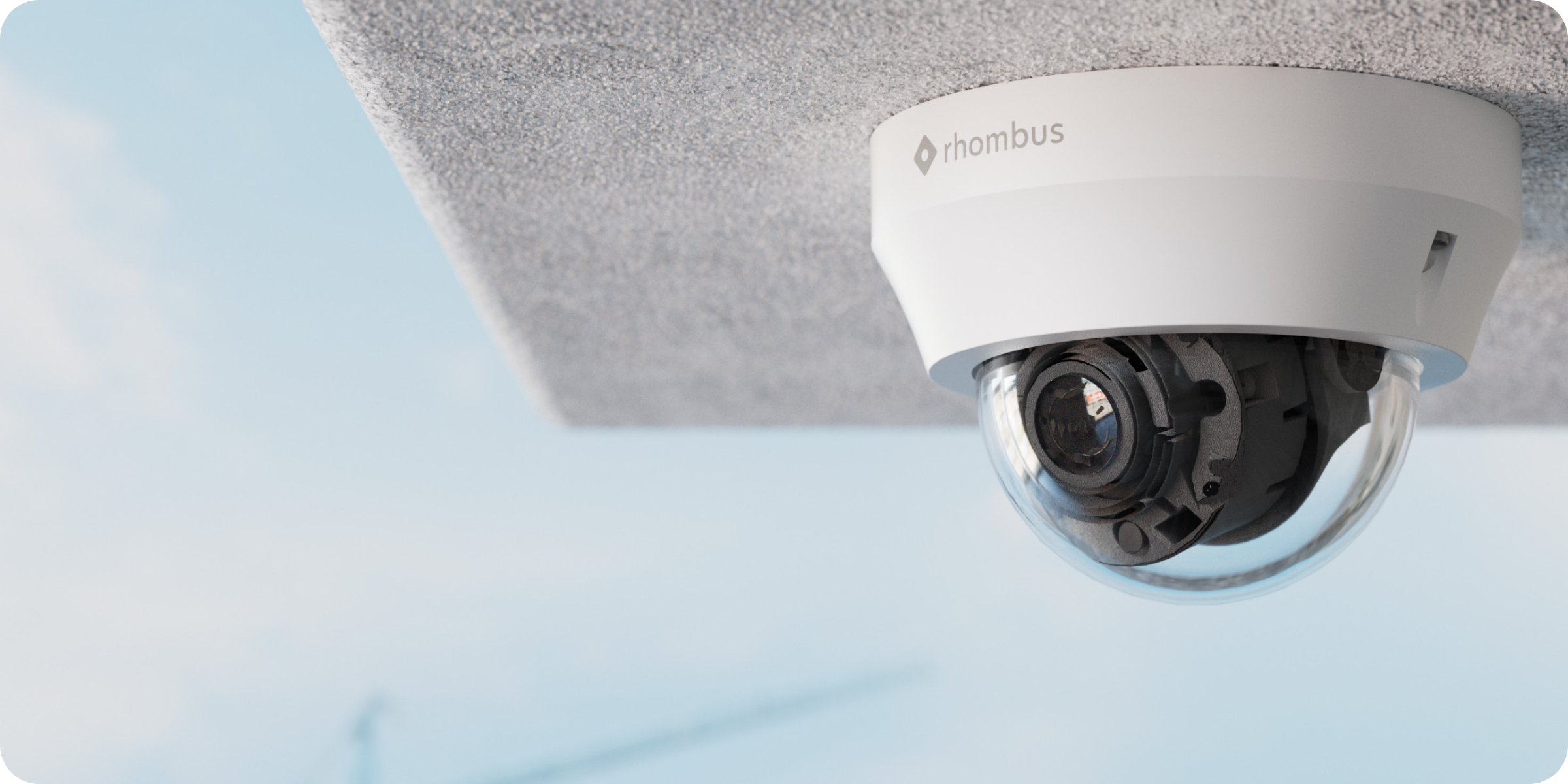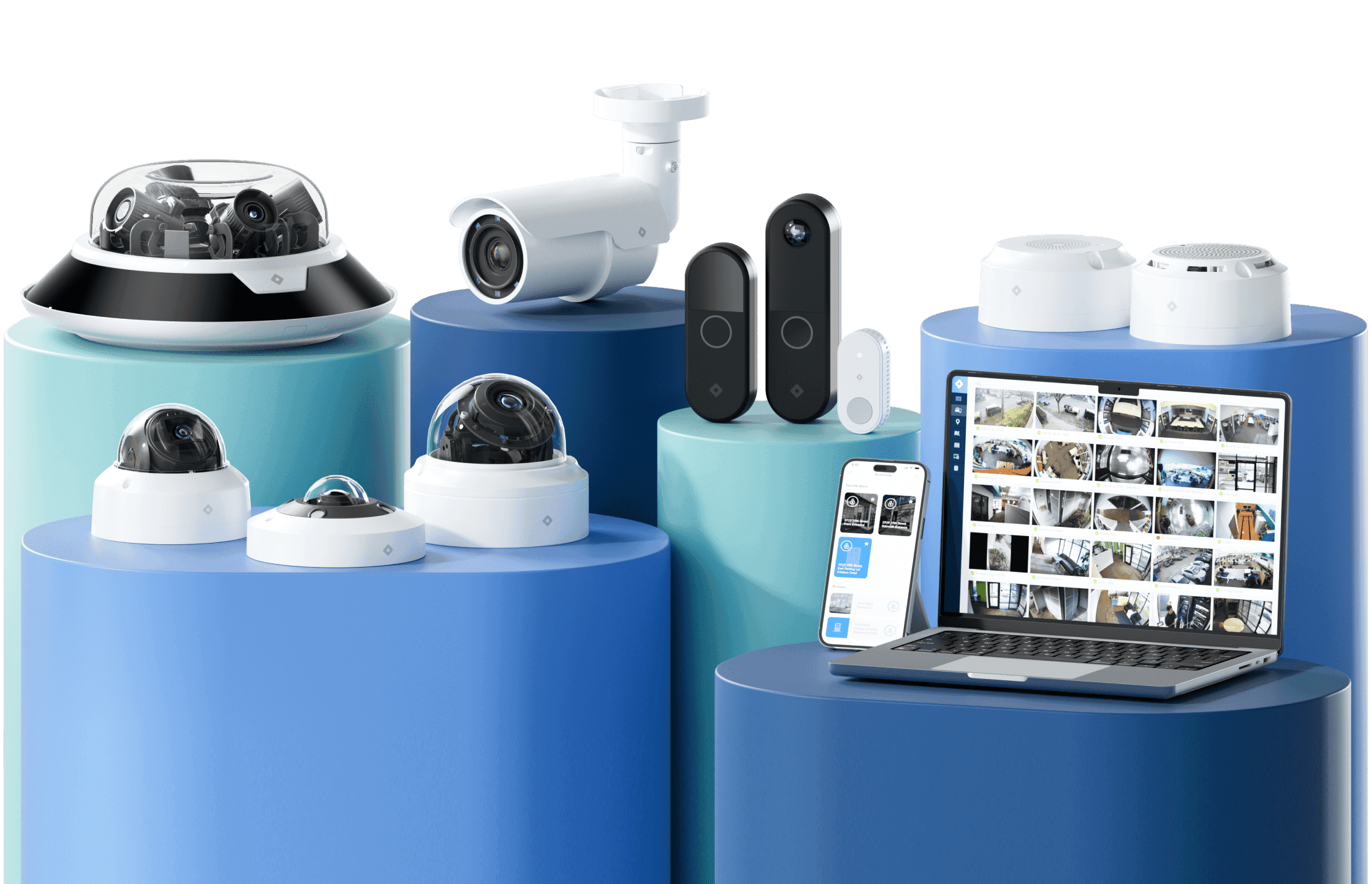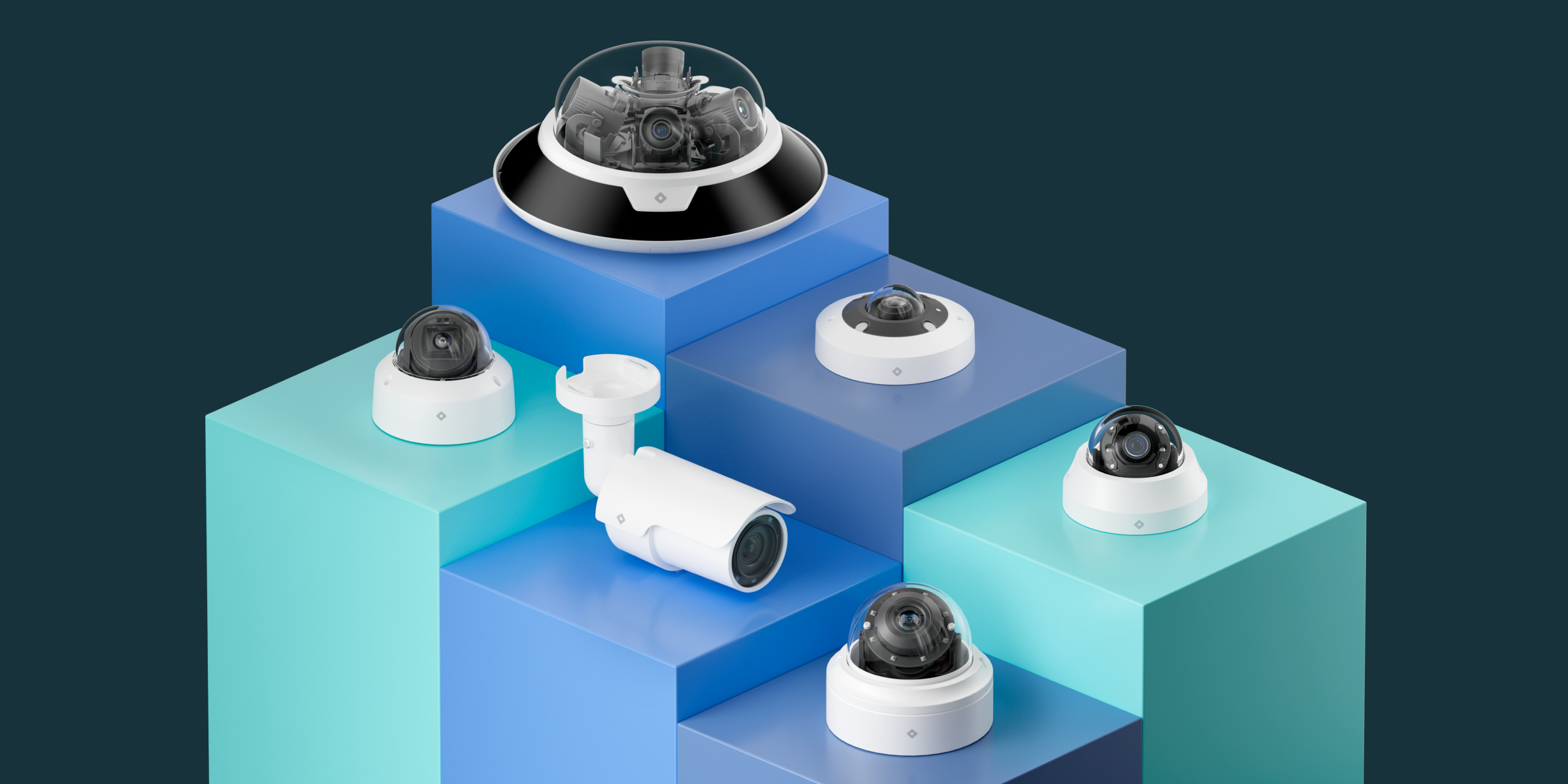Pros and Cons of Wireless WiFi Security Cameras

When it comes to video security, deploying the right camera and technology in the right place has a massive impact on operations and ROI. If you're an IT or operations manager planning your organization's video security setup, there are multiple types of cameras you can deploy—including wireless, or WiFi, security cameras.
Wireless WiFi security cameras offer a convenient way to monitor your organization remotely without network cabling. However, like any technology, there are pros and cons to using wireless WiFi security cameras.
When are wireless cameras a good option, and when are they more trouble than they're worth? In this blog, we'll explore the benefits and drawbacks of wireless security cameras to help you make an informed decision on whether they are the right choice for your security needs.
What are wireless WiFi security cameras?
Cloud security cameras need a power source and an internet connection to function. The network connection enables the cameras to transmit footage and data to the cloud, which allows you to remotely view video from anywhere, save and archive footage, and receive automatic firmware updates that keep the camera's features and cybersecurity protocols up to date.
When it comes to cameras, the term "wireless" refers to their mode of communication, not their power source. Wireless security cameras communicate using WiFi, while wired cameras use wires to transmit their footage.
- Wired security cameras are connected to a power source and the internet by cable. Wired IP cameras are the standard for enterprise video security and are recommended for most deployments.
- Wireless security cameras are connected to a power source by cable and connected to the internet by WiFi. Wireless cameras are recommended when wired internet is unavailable or cost prohibitive.
- Wire-free security cameras receive power and internet through non-traditional methods and may include solar panels, batteries, hotspots, WiFi, mobile boxes, cradle points, etc. They are unusual in enterprise deployments.
Most modern security cameras are wired and receive power and internet using one cable—a power-over-ethernet (PoE) connection.

Pros: When should I use wireless security cameras?
Wireless security cameras are ideal for securing locations where wired internet is unavailable or cost prohibitive.
Advantages of wireless WiFi security cameras
Though wired PoE security cameras are the first recommendation for enterprise organizations, wireless cameras have many advantages that make them an excellent solution for certain types of deployments.
Less cabling means more cost-effective coverage.
If a location doesn't have internet connectivity, running the necessary network cabling can be cost-prohibitive and is a major drawback for organizations looking to avoid expensive onsite hardware.
Wireless security cameras increase visibility without the cost and headache of running network cabling underground or across long distances. For many locations, wireless cameras are simply the more cost-effective option compared to wired cameras.
Coverage in hard-to-reach places.
Because wireless WiFi cameras don't need hardwired internet, they can be installed in a wide variety of places. This flexibility allows organizations to easily gain visibility in areas that otherwise wouldn't be covered.
Support temporary setups with efficient, lightweight installation.
As long as WiFi is available, wireless security cameras only need a power source to work, making them ideal for temporary deployments. Installation is fast, easy, and avoids the need to install expensive network cabling, which is often cost-prohibitive—and unnecessary—for temporary setups.
Supplement large deployments.
Wireless security cameras are perfect for organizations where some areas have wired connectivity and others do not. You can use a combination of wired and wireless cameras to cover the entire area and manage all cameras—wired and WiFi—from one centralized platform.
Best places to use wireless WiFi security cameras
Though many companies will never need them, wireless security cameras have many advantages that make them an excellent option for certain types of deployments. These cameras are typically used on a case-by-case basis, even within a single deployment—a system may use a combination of wired and wireless cameras.
Wireless security cameras can be a valuable asset for various industries and use cases, offering benefits such as enhanced security, streamlined operations, and reduced video security expenses.
Here are a few examples of industries that can greatly benefit from wireless security cameras.
Construction sites
Wireless cameras are ideal for construction sites' flexible and often temporary surveillance needs.
Security cameras allow construction companies to monitor active sites for theft, compliance, and safety hazards. However, construction sites may not have network cabling and infrastructure in place during the build. Wireless cameras allow you to immediately deploy cameras to protect the site without needing to wait for network cabling to be installed.

Wireless cameras are perfect for construction sites where security cameras are temporary. You can install cameras in the best places to monitor the area, get coverage via WiFi during the construction period, and easily remove the cameras when the job is complete—without having to deal with the cost and hassle of running temporary network cabling.
Towns, counties, and municipalities
Local and federal governments can use wireless security cameras to secure government buildings and outdoor public spaces alike without spending thousands running underground cable.
Protect government buildings, public spaces, and institutions, including:
- City parks
- Ballot boxes
- Parking lots
- Remote or rural locations
Schools and universities
Schools and university campuses often have outdoor spaces that extend beyond the main buildings and classrooms. From playgrounds to sports fields, wireless cameras allow schools to protect all campus areas while saving thousands on running cabling.
Protect campus environments, including:
- Parking lots and pickup zones
- Outdoor sports facilities: baseball fields, running tracks, football stadiums
- Playgrounds, play areas, and parks
Self-storage facilities
Many self-storage facilities have units spread over a wide area, and some buildings may not be set up for wired internet.
Rather than run network cabling to each building, protecting certain units with wireless cameras that use WiFi to communicate can be simpler and more cost-effective.

Cons: When not to use wireless WiFi security cameras
Wired security cameras are industry-standard for a reason. For enterprise organizations in particular, it's recommended to use wired security cameras when possible because a hardwired internet connection is more stable and reliable than WiFi.
- If wired internet is readily available, choose wired security cameras.
- If wired internet is not readily available, evaluate the installation cost. In some cases, it makes sense to run additional network cabling to enable the use of wired security cameras.
- If running the required cabling is cost-prohibitive or not feasible, wireless security cameras are an excellent alternative.
Are wireless security cameras worth it?
Though wired PoE security cameras are the first recommendation for enterprise organizations, network cabling isn't always available. That's where wireless cameras come in—if your organization requires powerful video security but lacks wired internet at certain locations, wireless security cameras are an excellent solution.
Whether or not your deployment includes wireless security cameras, Rhombus is here to help. Our cloud-based solution makes enterprise video surveillance powerful and user-friendly, so you can streamline operations and improve safety at scale. For a consultation, sign up for a personalized demo with one of our team members.
Related Articles

Try Rhombus for Free!
See why school districts, cities, and Fortune 500 companies use Rhombus
Start Trial

